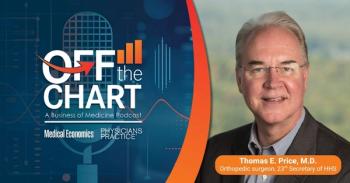
Hospital Employment and Physicians’ ‘Outside’ Business Interests
A physician considering hospital employment should also consider the effect on their healthcare business interests outside of their practice.
Experienced community physicians often have ownership interests in businesses in addition to their medical practices. The physicians are typically active participants (rather than merely passive investors) in medically-related businesses. A physician considering hospital employment should consider the potential effect on these types of investments.
The first consideration is whether the potential employer will permit the physician to continue to own/participate in outside medically-related businesses. This typically depends on the nature of the investment activity. If the investment is in a business that competes with the hospital or its affiliates, then the hospital will likely prohibit that investment.
For example, if a physician is an investor in an ambulatory surgical center (ASC), then the employing hospital will very likely require the physician to divest that interest. A physician’s ownership might be at risk from the ASC’s perspective for a related reason. For example, if a hospital requires the physician to refer all cases to hospital facilities, then the physician will likely be deemed a “passive” owner of the ASC. The ASC’s governing rules might require the physician to redeem his/her ownership interest if the physician is no longer an active user of the ASC.
Hospitals typically do not restrict an employed physician’s ownership/participation in businesses that do not compete with the hospital. For example, many physicians own medical office buildings or other medically-related real estate. Some physicians own interests in non-acute health care businesses such as vein centers. Hospitals almost always permit these types of non-competitive interests to continue.
A clinical research business can go either way. If research is part of the hospital’s mission, then it will likely seek a way to integrate the physician’s clinical research business. If not, then the physician is typically permitted to operate the research business independently.
If a hospital requires divestiture of an interest, then the hospital will typically seek to purchase the physician’s interest at fair market value. That might not be practical if, for example, the other investors are physicians who are not affiliated with the hospital. It is also possible that the hospital might offer to enter into a joint venture arrangement related to the outside interest.
A hospital typically will not require a physician to divest ownership in a healthcare manufacturer, supplier, or service company. If the hospital or its affiliates purchase those products or services, then the hospital will carefully review its procurement arrangements for conflicts of interest, commercial terms, and related concerns.
If a physician maintains “outside” ownership interests during employment, then - regardless of the nature of those interests - the employment agreement will typically seek to assure that the outside activities do not interfere with the physician’s ability to perform employment services.
A physician should inventory his/her ownership interests, understand the hospital’s probable position regarding each, determine the economic effect of various options, and then determine the physician’s optimal arrangement (retain all, sell some, other). Understanding this will permit the physician to negotiate with knowledge of the effect of the various probable future arrangements/restrictions. This will assist the physician to assess his/her current arrangements and future employment on an “apples to apples” basis.
Find out more about John Erickson and our other
Newsletter
Optimize your practice with the Physicians Practice newsletter, offering management pearls, leadership tips, and business strategies tailored for practice administrators and physicians of any specialty.








